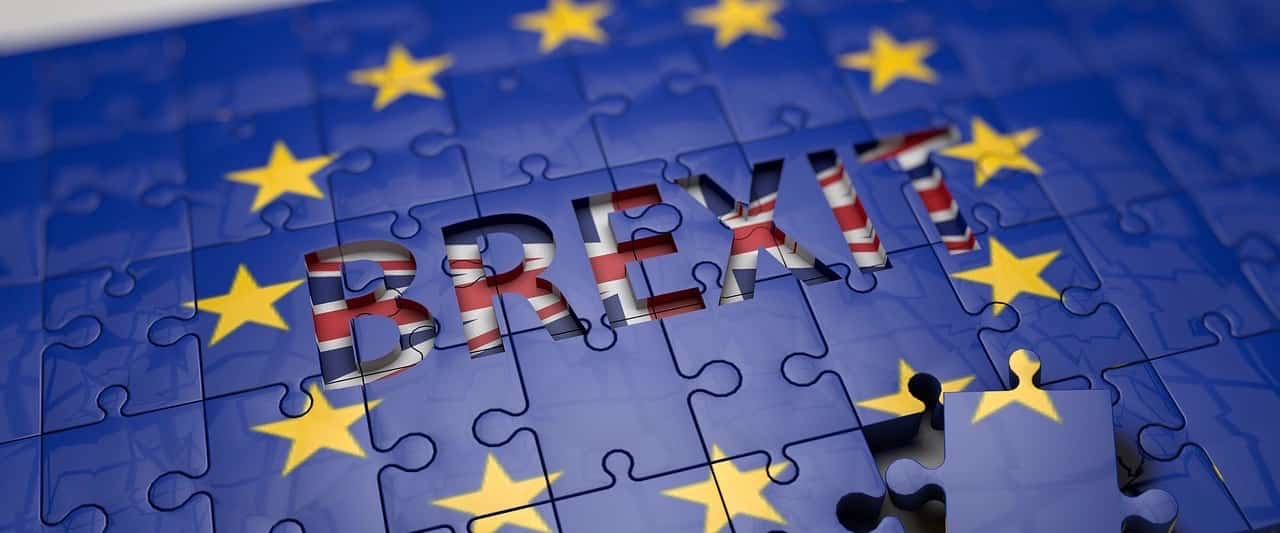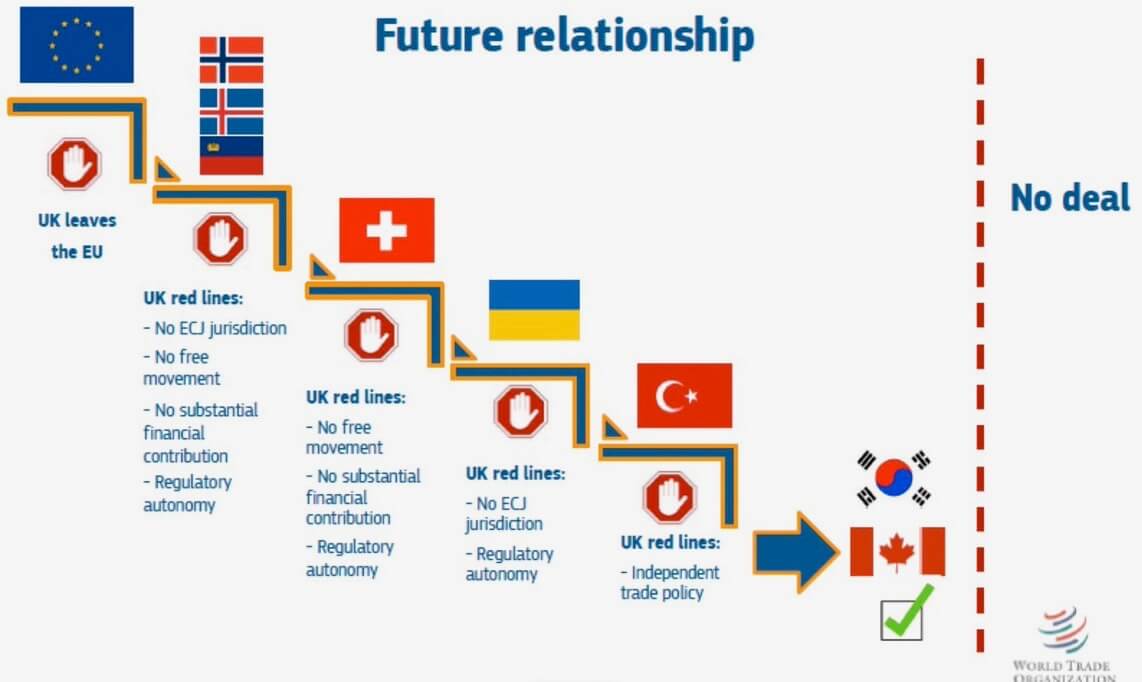Brexit: what are the consequences for the EU and the Erasmus program?
On the 23rd of June 2016, during a referendum, organized by the former Prime Minister David Cameron, 51.9 % of the British people have chosen to leave the EU. The “British Exit”, also known as “Brexit” was born. Since then, for almost two years, it’s been a burning topic among European leaders.
But what are the major issues with it and what would be the specific impact on the Erasmus+ program and European students?

What is Brexit actually?
As the people of the United Kingdom have vote, the country is therefore ready to leave the EU. A process which is supposed to end in March 2019, after 2 years of complex negotiations between the British government and its 27 European government counterparts. Since the 23rd of March 2018, Theresa May doesn’t allow any backward steps, as it will be a “hard Brexit”, no concessions. Here are the main measures: leaving the EU single market, leaving the EU, not depending anymore from the European Commission.
Ms May aims to have the power to negotiate her own commercial agreements, mainly with the Commonwealth. She still wishes that she could maintain a free-trade agreement with the EU, yet, she has admitted that life will be whole lot different for the British people. “We have to reach a new equilibrium. However, we will not accept Canadian rights and Norway obligations.” -she warned.
Nevertheless, her idea to negotiate individually with each European country has been a huge failure. Donald Tusk, the European Council president, declared: United Kingdom has chosen to leave the single market and the customs union will lead to “tensions” in their future commercial relations. Meaning that you are either in the European union, or you are not and personalized agreements will not happen. Without these agreements, the United Kingdom would be considered as a regular non-European country and would have to respect the World Trade Organizations rules which would mean tariff barriers.
In order to understand clearly, a document was presented by Michel Barnier to the European Council on the 15th of December 2017. It shows all the requirements from the EU, that the United Kingdom would have to fulfill in order to receive benefits from the EU and be considered as a partner like Switzerland for instance. If Theresa May will not reverse her decision keep the “No Deal” situation, the United-Kingdom will be a third-party country for the Europeans, like Japan for example.
United-Kingdom is now back to level zero. If the British people want, one day, to be part again of the EU, they would have to start from scratch and apply like a regular country would do!

Brexit is on its way, yes, but… a small way out still exists which could prevent the United Kingdom from leaving the EU. It would only require Theresa May to address a letter to Donald Tusk in order to reverse her statements concerning the 50th article about the EU. To do so, the deadline would be on the 29th of March 2019. Regarding the current political and economic differences, this seems unlikely to happen.
The Brexit in a few dates
20/02/2016: David Cameron announces that the referendum will take place on the 23rd of June 2016. The question asked is: “Should the United Kingdom remain a member of the European Union or leave it?”.
23/06/2016: Votes have been calculated, the result: 51.9% of the British people wants Brexit, to leave the EU.
24/06/2016: The Prime Minister, David Cameron resigns.
13/07/2016: Theresa May becomes Prime Minister. A new ministry dedicated to the Brexit is entrusted to David Davis, former European Affair secretary.
27/07/2016: Michel Barnier is named as the new chief negotiator of the commission in charge of leading negotiations with the United Kingdom.
17/01/2017: Theresa May confirms the “hard Brexit” by mentioning a total withdraw from the Union, including the Single Market and the jurisdiction of the Court of Justice. She presents her plan by defending a clear separation with the EU: “The United Kingdom can’t be part of the EU anymore”.
29/03/2017: United Kingdom invokes the 50th article of the Lisbon Treaty and triggers the leaving process.
29/04/2017: Theresa May’s project is being approved by the European Summit, all the 27 member-states.
22/05/2017: The EU adopts Michel Bergé’s negotiating mandate and officially gives him the right to start discussing with British government.
19/06/2017: Official start of the negotiation.
22/09/2017: Speech in Florence. Theresa May asks for maintaining the current bonds with the EU for a transition period of 2 years after the Brexit, in order to avoid a brutal change in rules for citizens and firms.
08/12/2017: Preliminary agreement on 3 key points, but which still remains discussed until October 2018. First of all, the 40 to 45 billion euro exit bill to be paid during the upcoming years, corresponding to the commitments taken in 2014 for the European budget. Secondly, European citizens residing in the United Kingdom and British people living in the other member countries shall keep their rights. Finally, the last key point is about not returning to a physical border between Northern and Southern Ireland.
19/01/2018: British and European negotiators managed to transcribe juridically the post-Brexit transition period terms (130-pages-long agreement, 75% approved by both parties).
23/03/2018: Adoption of the general guidelines by the 27 European leaders within the framework of future relations between the EU and United Kingdom.
29/03/2019: Brexit ratification: United Kingdom will officially leave the 28 states European Union and all its institutions.
01/01/2021: Ending of the transition period. People, services and goods can’t move freely anymore between United Kingdom and European Union.
Follow-up to the European Council from the 23rd March 2018.
On Friday, the 23rd of March 2018, the 27 European leaders met the British leaders to discuss the future post-Brexit relations. Donald Tusk, the president of the European Council (the European leaders Assembly), was satisfied with the common position adopted by the EU 27, concerning the negotiations in Brussel. This happened 3 days after the European Union announced the transition period which is going to last until the 31st of December, 2020.
Decision: EU27 has adopted guidelines for the future EU-UK relations after #Brexit
— Donald Tusk (@eucopresident) 23 mars 2018
He also asked the 27 leaders to give green light for a post-Brexit transition presented by Michel Barnier and David Davis. They had founded an agreement on these guidelines just before the summit. “We are reaching today a decisive step in this harsh and extraordinary negotiation” (statement relayed by Europe 1), observed Michel Barnier, who report the results of the negotiations to the 27 leaders. This will allow him to start discussing about the frame of the future partnerships with the United Kingdom, as they will have to respect EU’s principles and identity as well as the Single Market, considering that the United Kingdom will become a third-party country for European leaders.
Before leaving her peers, the British Prime Minister Theresa May wanted a new dynamic in the negotiations. Despite the separation, she wants to assure a strong partnership in terms of economics and security between the two parties.
Besides, she emphasized the fact that the temporary agreement on a 21 months post-Brexit transition is needed trade-offs from both sides but finally allowed to offer some certainties to companies and citizens concerned by the Brexit.
As for the EU, it still insists on finding a future free trade agreement in order to preserve the indivisibility of its single market, by reminding everyone one of its basic principles during this negotiation: no personalized trade agreement will be accepted.
How will Brexit impact the Erasmus Program?
The Erasmus program was created by the European Commission in order to implement free student movements between the main European schools and universities. Launched in 1987 by 11 member-states, including United Kingdom, it has allowed more than 4 million students to study in another European country by giving them scholarships and canceling tuition fees. This program is bounded by the Schengen area.
“Schengen allows Erasmus and Erasmus needs Schengen” – Michel Grelier
Even if the United Kingdom had never been a member state, it has an exemption of allowing free movement of people, vital for the Erasmus program.
As predicted by Michel Grelier during his conference on the 14th of March 2018, negotiations aim for a “Hard-Brexit”. Thus, United Kingdom will not be a possible destination for the Erasmus program and British students will not be able to enjoy this benefit anymore.
What are the consequences for European students?
A lot of students have considered their studies or even their professional career in the United Kingdom. Thanks to the opportunities offered by the Erasmus program, British students had access to other European universities, whom could have benefited from reduced tuition fees and equivalent diplomas. Until now, British universities had welcomed almost 7000 students from the EU.
Theoretically, European students will still be able to study in United Kingdom but “they will have to spend much more money than before because they would be recruited as international students” explains Anne-Catherine Guitard, Kedge Business School (France) programs director. It is important to know that tuition fees are particularly high in United-Kingdom which makes its universities unaffordable for most of the Europeans without Erasmus program’s help. For example, Oxford university counts 60% of its students coming from an EU member-state. Thus, consequences will be catastrophic for this kind of universities. Moreover, students would need a VISA to consider studying in United-Kingdom and this could dissuade huge part of them!
What are the consequences for British students?
They will be ones who are the most impacted by the Brexit, obviously. Indeed, lots of them are eager to go abroad but without financial help from the Erasmus program, it will be harder for them to do so.
Questioned by France 24 in March 2017, the British Erasmus agency director Ruth Sinclair-Jones, states that “The first priority should be to make sure that the United Kingdom remains an Erasmus program member because it would benefit everyone, not just the British people”. Yet, we already know that it won’t happen, she claims that another option should be chosen within this restructuring so that “the next British generation of students won’t be prevented from enjoying the benefits of meeting other European students”. However, an agreement could be found, as with Switzerland and Norway today but this takes a lot of time and the deadline is March 2019.
Negotiations are happening between the EU and the United Kingdom which are not leading towards the maintaining of the current program. Yet, we are waiting for independent negotiations to happen between the countries individually which could generate specific agreements with the universities. Results could be the recognition of diplomas internationally and reducing the tuition fees.
The new generation has the duty to protect the Schengen area for the Erasmus program and the European solidarity in general. Young British people are seeing their dream to study abroad going to ashes with the Brexit. On the other hand, European students will still benefits from a wide range of destinations while enjoying the economic help and ease from administrative processes provided by the EU.
In the short term, Brexit should not directly impact the Erasmus program for students already in exchange or close to leave. As long as the UK remains a member of the EU, the status quo prevails. 2017-2018 and 2018-2019, the Erasmus exchanges will not be affected and the program will end with British people in June 2019 (end of the academic year).
More articles
5 things not to tell your German boss during your internship abroad
First of all, if you are still looking for an internship in Germany, either to improve your German language and have a professional experience abroad, check out our internship offers in Germany: Or, You do your already get your internship in Germany? Congratulations!...
What you should know before you pack for your internship abroad
Everyone knows the hassle and stress when you have to pack for your internship abroad, while only having one suitcase…
Legal document to do an internship in Spain
Finally, you got your internship in Spain! That’s great! But after the happiness there are the administrative concerns, which are less fun…
